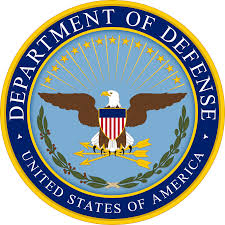
U.S. Department of Defense
Nuclear Engineer
 Mukilteo, WA,
98275
Mukilteo, WA,
98275
Part Time, Full Time
$89,353 per year
Posted 9 days ago
Actively Hiring
Duties:
- Overhaul Support: Assist in portions of major nuclear reactor plant overhaul projects under the guidance of a senior Nuclear Engineer.
- Design Evaluation: Analyze, evaluate, and resolve conflicts or inadequacies in operational design specifications.
- Engineering Instructions: Prepare instructions for the overhaul and repair of reactor piping systems and mechanical components.
- Material & Inspection Planning: Identify required materials, quality levels, and inspection protocols for nuclear plant repairs.
- Correspondence: Prepare and manage off-station communication, such as change requests, trouble records, and liaison action requests.
Conditions of Employment:
- Citizenship: U.S. citizenship is required.
- Security Clearance: Candidates must obtain and maintain a security clearance before beginning the role.
- Federal Employment Suitability: Applicants must meet suitability standards for federal employment.
- Time-in-Grade: Current federal employees must have served at least one year at the lower grade level to qualify.
- Selective Service: Male applicants born after December 31, 1959, must be registered with Selective Service.
- Physical Requirements: The role involves exposure to hazardous physical and chemical environments, including radiation, requiring the use of protective gear.
- Travel: The job may require travel to CONUS and OCONUS locations, including remote or isolated sites, and extended stays on military or commercial aircraft.
Qualifications:
To be eligible for this position, applicants must meet the following qualifications:
Basic Education Requirements:
- Bachelor’s Degree in Engineering: A degree from an accredited engineering program (ABET accredited).
- OR Engineer Intern (EI) or Engineer in Training (EIT): Registration with the appropriate state body or licensure as a Professional Engineer (PE).
- OR Fundamentals of Engineering (FE) Exam: Proof of passing the FE exam or other relevant written tests for professional registration.
- OR Relevant Coursework: At least 60 semester hours in physical, mathematical, and engineering sciences, including coursework in core engineering principles (e.g., statics, dynamics, thermodynamics).
Additional Education Options:
- Bachelor’s Degree in Related Fields: A degree in a closely related field (e.g., physics, chemistry, architecture) may be accepted if supported by at least one year of professional engineering experience under supervision and guidance.
Special Considerations:
- COVID-19 Vaccination: There are no vaccine requirements currently due to a nationwide injunction, but other safety protocols may still apply.
- Work Schedule: The position may require uncommon hours, including night shifts, weekends, and holidays.
- Rotating Shift Work: The position involves rotating shift schedules.
- Workplace Safety: Employees will need to adhere to strict safety protocols, including exposure to high noise levels and potentially harmful agents.
ICTAP Eligibility:
Federal employees displaced from their positions may qualify for priority consideration under the Interagency Career Transition Assistance Plan (ICTAP), provided they meet all qualifications and score highly on the selection criteria.
Additional Information:
- Part-Time or Telework: This position is eligible for part-time, full-time, or ad-hoc telework at the discretion of management.
- Temporary Position: This position may be subject to termination prior to the set end date.
Would you like assistance with the application process or tailoring a resume for this role
What other people searched near you
Nuclear Engineer near me
Nuclear Engineer companies
Nuclear Engineer highest salary
Salary of Nuclear Engineer
Nuclear Engineer yearly salary
Nuclear Engineer salary per year
Nuclear Engineer median salary
Nuclear Engineer v salary
Searches you may like
U.S. Department of Defense hiring immediately
Jobs hiring now
Seasonal jobs near me
Jobs in Washington
Local jobs near me
Related Jobs
ADC Engineer
Amazon
Duvall, WA
Posted 8 days ago
ADC Engineer
Amazon
Kirkland, WA
Posted 8 days ago
ADC Engineer
Amazon
Mercer Island, WA
Posted 8 days ago
ADC Engineer
Amazon
Mill Creek, WA
Posted 8 days ago
ADC Engineer
Amazon
University Place, WA
Posted 8 days ago
ADC Engineer
Amazon
Stanwood, WA
Posted 8 days ago
FAQ's
Find the answers for the most frequently asked questions below